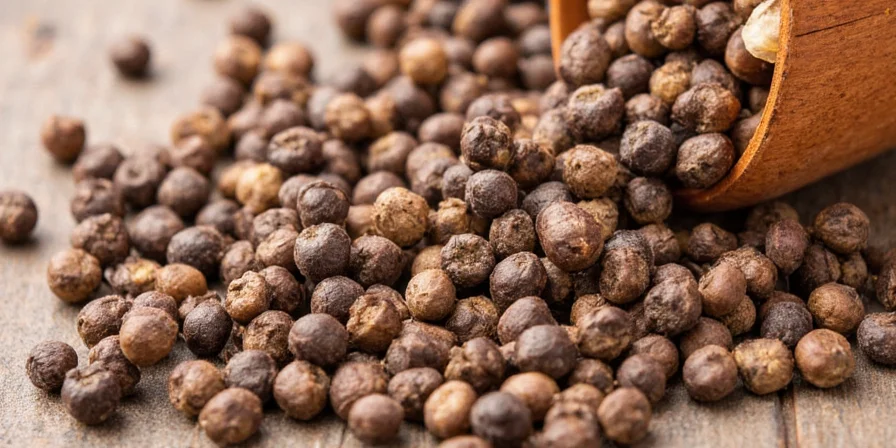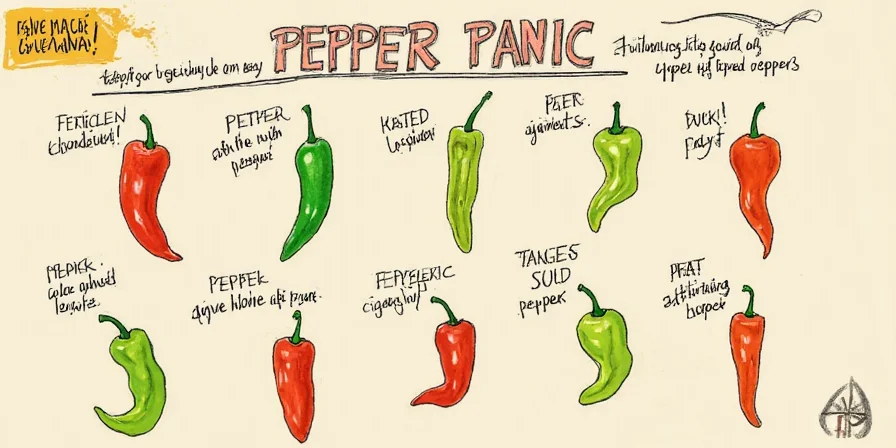Does Pepper Spice Up More Than Just Your Food?
When you think of pepper, your mind probably jumps straight to the classic black peppercorn gracing your dinner table. But hold on—does pepper really only belong in the kitchen? In this blog post, we're going to take a deep dive into the world of does pepper, exploring not just its culinary uses but also its hidden potential in gardening, health, and even DIY hacks. Buckle up—it's about to get spicy!
Table of Contents
- Why Pepper Matters
- Pepper Basics: A Quick Rundown
- Uses Beyond the Plate: Unconventional Pepper Tricks
- Choosing the Right Pepper for the Job
- Cooking with Confidence: Expert-Level Pepper Hacks
- Growing Your Own Peppers: From Seed to Spice
- Health Perks: Is Pepper Actually Good for You?
- Common Myths About Pepper Busted
- Summary & Takeaways
Why Pepper Matters
Pepper isn’t just a seasoning; it’s a global powerhouse of flavor, medicine, and tradition. With over 100 different species in the Piper genus alone, black pepper is just the tip of the iceberg.

In this section, we’ll explore how different types of pepper are used across cultures and what makes them so versatile. Spoiler alert: it's not just about heat!
Pepper Basics: A Quick Rundown
| Type | Heat Level (SHU) | Best Used For |
|---|---|---|
| Black Pepper | Low (1,000–2,000) | Seasoning, grinding, everyday cooking |
| Jalapeño | Medium (2,500–8,000) | Salsas, nachos, stuffed peppers |
| Habanero | Very High (100,000–350,000) | Hot sauces, adventurous dishes |
| Bell Pepper | None (0 SHU) | Salads, roasting, stuffing |
This simple chart gives you an overview of some popular peppers and their Scoville Heat Units (SHU). Knowing these basics can help you pick the right one for your next recipe or project.
Uses Beyond the Plate: Unconventional Pepper Tricks
- Pest Control: Crushed black pepper mixed with water can act as a natural insect repellent. Spritz around garden beds or indoor plants.
- DIY Face Mask: Combine ground black pepper with honey for a zit-zapping face mask. Use sparingly—your skin might tingle!
- Compost Activator: Adding chopped chili peppers to your compost pile can speed up decomposition by stimulating microbial activity.
Choosing the Right Pepper for the Job
Not all peppers are created equal. Here’s a quick guide to help you choose wisely:
- For Subtle Flavor: Go for white or pink peppercorns—they’re milder than black pepper.
- For Heat Lovers: Ghost peppers or Carolina Reapers will test your spice tolerance limits.
- For Sweetness: Red bell peppers have more sugar content and are perfect for roasting or eating raw.
Cooking with Confidence: Expert-Level Pepper Hacks
Want to impress your friends with pro-level pepper techniques? Try these tips:
- Toasted vs. Raw: Toasting whole peppercorns before grinding enhances their aroma. Try it with a dry skillet and a pinch of curiosity.
- Freshly Ground = Better Flavor: Grind your own instead of buying pre-ground pepper. The difference in taste is night and day.
- Pair with Fats: Peppery flavors bloom when combined with oils or butters. Add cracked black pepper to your next garlic butter steak for a knockout combo.
Growing Your Own Peppers: From Seed to Spice
Ready to level up from consumer to cultivator? Growing your own peppers is easier than you think. Start with these steps:
- Pick a Variety: Choose between annuals like jalapeños or perennials like chili bushes depending on your climate.
- Soil & Sunlight: Peppers love warm soil and full sun. Aim for at least 6–8 hours of direct sunlight daily.
- Water Wisely: Keep the soil consistently moist but not soggy. Overwatering is a common beginner mistake.

Health Perks: Is Pepper Actually Good for You?
Turns out, pepper isn’t just tasty—it’s packed with benefits! Check out these science-backed perks:
- Boosts Nutrient Absorption: Piperine in black pepper enhances the absorption of nutrients like curcumin (found in turmeric).
- Anti-Inflammatory Properties: Studies show that regular consumption may reduce inflammation markers in the body.
- May Aid Digestion: Pepper stimulates digestive enzymes, which can improve gut health and reduce bloating.
Common Myths About Pepper Busted
Let’s clear up some misconceptions floating around the spice rack:
- Myth: All peppers are spicy.
Truth: Bell peppers have zero heat and are part of the same family as hot peppers. - Myth: Spicier means healthier.
Truth: While capsaicin has benefits, mild peppers offer antioxidants and vitamins too. - Myth: Pepper always needs salt.
Truth: Sometimes, pepper shines best on its own—try a sprinkle on fresh fruit for a surprising twist.
Summary & Takeaways
So, does pepper spice up more than just your food? Absolutely! From boosting your meals to boosting your health, pepper is a multitasking marvel. Whether you’re a seasoned chef or a curious home cook, there’s always more to discover in the world of does pepper.
Final Tips Recap:
- Use crushed black pepper for natural pest control in the garden.
- Experiment with toasting peppercorns for enhanced flavor profiles.
- Growing your own peppers is rewarding and surprisingly easy.
- Don’t underestimate the health benefits—especially when paired with other foods.
- Pepper doesn't always mean “hot”—explore sweet and aromatic varieties too.










 浙公网安备
33010002000092号
浙公网安备
33010002000092号 浙B2-20120091-4
浙B2-20120091-4